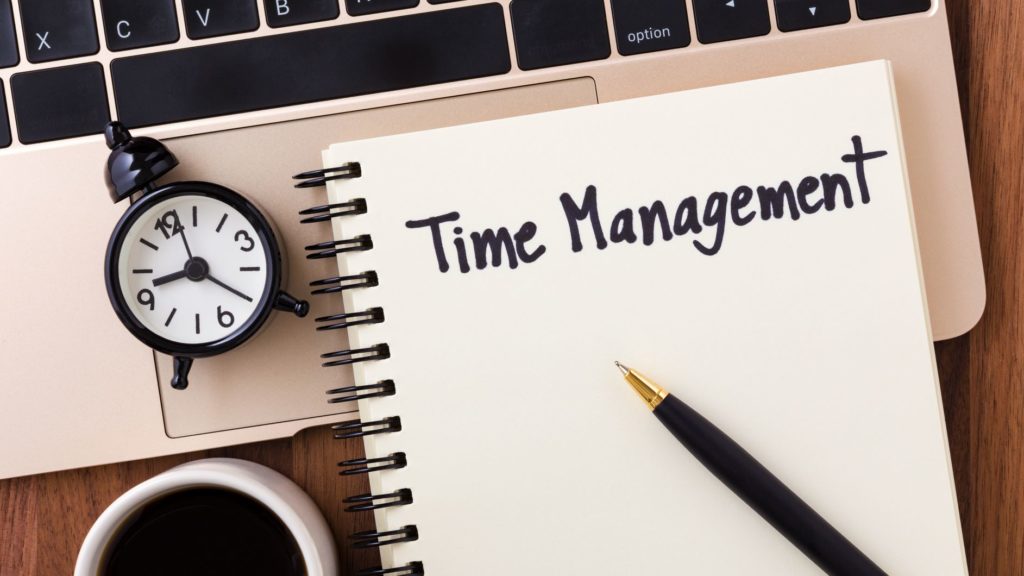
It’s after 3 p.m. on a workday. Do you feel confident that you’ve accomplished your day’s goals, or do you panic at the thought of how much is left to do? That’s the question Karen Foster-Jorgensen, Founder of Chief Inspiration Officer of ChildCareDirector.com, asks at the top of this inspiring webinar.
Karen founded, owned and directed two early child care centers with over 200 families and children from six weeks to 10 years. She’s also a business strategist who helps child care center directors map out their financial success and author of “It’s More About the Strategy Than Math,” a guide for child care business financial success. In addition, Karen is an international conference speaker, grant writer and inspiration to those in the child care field.
In the webinar, Karen discussed:
- Time Management in an Unpredictable Environment
- Ways to Think of Time as Buckets of Different Categories
- Finding Gratitude in the Everyday
- The Power of the “To Be” List
You can watch the webinar here and enjoy Karen’s fantastic tips and experiences. Let’s dive into the recap here.
1440 Minutes

Karen says, “The role of the director is a unique position. I ask people what attracts them to this work, and they say, ‘it’s never dull.'”
The challenging part of our work is we wear so many hats and have so many responsibilities. We need to get certain things done every day, yet, our job is unpredictable.
“We never know exactly when a parent will need us or when a teacher will need us, or when a child will need us. So we can schedule time in our day for such communication, but we don’t know when it will happen. If we pack our workday completely full, what’s going to happen when the unexpected happens?” Karen asked.
The result is, something else has to shift. We’ll have to work longer or shortchange something else. Karen reminds us that an 8.5-hour workday is 510 minutes, and our entire day is 1440 minutes. It’s what we do with those minutes that make all the difference.
Karen says, “What really matters is what we do with our 1440 minutes every single day. How we choose what we work on makes a big difference in how we feel about our life and about our time.”
In many of Karen’s time management seminars, she has people study their time every day. Usually in 15-minute increments to see what they do with their time. Here’s a fairly common breakdown that she encounters in her work:
- Work: 510 minutes
- Sleep: 480 minutes
- Family and friends: 120 minutes
- Household tasks: 120 minutes
- Take homework or other interests: 60 minutes
- Personal care and exercise: 60 minutes
- Commuting and errands: 45 minutes
What’s left is 45 little minutes.
Time Buckets
“When we look at our life, one of the things that make us feel like we have a good life is how we spend our time,” said Karen. “Everyone’s life is different. No one is going to have exactly the same buckets or fill them in the same way.”
Most people think about their time buckets in terms of work, family, friends and community. But there’s more to life than those four. What kinds of buckets are you working to fill? What’s important to you?
Karen reminds us, “When our work bucket is full, other things are going down. It’s a juggling act. We all have priorities and things important to us.”
The key is figuring out what’s important to you to feel like you’re doing the right things and experience more satisfaction. Karen mentioned she’s long been a devotee of Stephen R. Covey, author of “The 7 Habits of Highly Effective People” and Hyrum Smith, author of “The 10 Natural Laws of Successful Time and Life Management.” Smith founded the Franklin Planner and later merged his company with Stephen R. Covey’s to form Franklin Covey.
You’re probably familiar with the Franklin Covey productivity planners. Karen says in his book, Hyrum Smith made a few points that changed her life.
As she says, “We’re all governed by our values. What we consider most important in our lives comes from our values, leading us to our goals and, finally, our daily tasks. The reverse is true too. If our daily tasks lead to our goals and our governing values, then we feel inner peace.”
Karen adds gratitude.
Gratitude

This year has been like no other. Now, more than ever, it’s important to cultivate gratitude. We all have challenges.
Karen invites us to feel gratitude that our early child care programs came through the year. That our friends and family have mostly come through this with us and that we can still walk in the sunshine. We can feel gratitude that we’ve come as far as we have.
How can we be grateful?
We all have things in our daily tasks that we don’t want to do and can’t see how they lead us to our goals. But often, simple tasks do connect to our larger vision.
In her workshops for child care center staff, Karen likes to ask questions like, “How are wiping tables and noses leading to our goals and governing values? It helps for staff to talk about this and think about it. We can start to see that those things go into caring for children.”
When you connect the daily tasks to the larger goals and values, you can see that wiping noses and zipping winter coats directly relate to your values of child care.
The Power of the To Be List
We’re all pretty good with a “to do” list. But how are you with a “to be” list? What does it mean to be intentional? To be joyful? To be connected?
Being is different from doing.
Meetings, appointments and administrative tasks may fill your “to do” list.
What kinds of things are on your “to be” list? You might want to be a loving, present parent, an effective leader and a happy, healthy person.
When you start looking at your “to be” list, you can connect those things with your “to do’s.” Karen gives an exercise in some of her workshops, and she describes it in the webinar. “You can put your ‘to-do’ list side by side with your ‘to be’ list and start drawing arrows between them. What am I doing on my ‘to do’ list that’s leading me to my ‘to be’ list? Sometimes we put things on our ‘to be’ list and realize there’s nothing on our ‘to do’ list that connects to our ‘to be’ list. That’s when we can feel frustrated with where our time goes.”
Not everything “to do” feels exciting. Yet, even laundry has a purpose if you want to be someone with a clean and inviting home.
When you do this exercise and start connecting your “to do’s” with “to be’s,” you may find your perspective changes. Karen shifted her view of a clock as a lounge chair looking at the ocean. Can you feel as relaxed?
In summary, if we want to be effective leaders and feel satisfied in our daily lives, it helps to think about how we spend our time.
Suppose we create the time buckets important to us and figure out how to spend our 1440 minutes a day. It won’t be equal every day. But we do want to see how we’re dividing and prioritizing our time.
When we fill our buckets that way, we’ll find we can write our “to do” list and our “to be” list and discover that the things we want “to be” are starting to fill in from our “to-do’s.”
Karen was an inspiring webinar guest and shared such great insights on getting more satisfaction out of our unpredictable days. We invite you to watch the full replay here.



